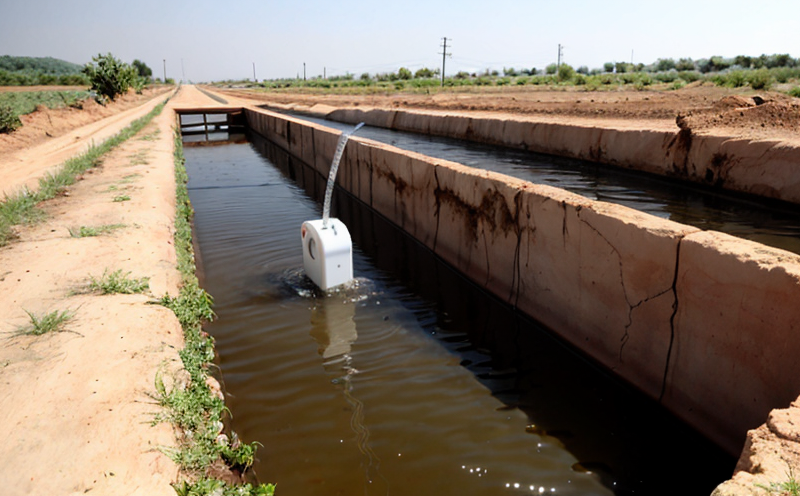Comprehensive Mine Water and Groundwater Quality Profile Testing
The Comprehensive Mine Water and Groundwater Quality Profile Testing service is a cornerstone of sustainable mining operations. Understanding and managing water quality within mine sites and surrounding groundwater environments is crucial for environmental compliance, operational safety, and community well-being.
Mining operations generate significant volumes of water that can have a direct impact on the environment if not properly managed. This testing profile ensures that all relevant parameters are comprehensively evaluated to meet regulatory standards and internal quality control requirements. The service focuses on identifying potential risks early in the process, enabling proactive measures to mitigate adverse effects.
The testing protocol includes both chemical and physical assessments of water samples collected from various points within the mine site. This allows for a detailed understanding of the current state of the water body, which is essential for making informed decisions regarding operational practices and environmental stewardship.
Our team employs advanced analytical techniques to ensure accuracy and precision in our results. We utilize state-of-the-art equipment tailored specifically for this type of testing, including spectrophotometers, ion chromatographs, and conductivity meters. These tools allow us to detect trace amounts of contaminants down to parts per billion levels, providing reliable data that can be used for decision-making.
Testing parameters cover a wide range of indicators such as pH, dissolved oxygen (DO), turbidity, total suspended solids (TSS), metals like lead and copper, organic compounds including benzene, toluene, ethylbenzene, xylene (BTEX), and various other parameters depending on the specific requirements set by regulatory bodies or internal policies.
Specimen preparation involves collecting representative samples from different depths and locations within the mine site. Samples are then transported to our laboratory where they undergo rigorous analysis using established methods such as those outlined in ISO 6223:2018 for pH measurement, ASTM D4129-17e1 for turbidity determination, and EN 14859-2 for metal content assessment.
| Applied Standards |
|---|
| - ISO 6223:2018 - Procedure for the measurement of pH in water using glass electrodes |
| - ASTM D4129-17e1 - Standard Test Method for Turbidity of Water by Means of Optical Backscatterometry or Transmissiometry |
| - EN 14859-2 - Determination of metals in water and wastes containing metals - Part 2: Inductively Coupled Plasma Mass Spectrometry (ICP-MS) |
The data generated from these tests provides valuable insights into the overall health of mine waters and groundwater supplies. This information is critical for maintaining compliance with environmental regulations, ensuring worker safety, protecting local ecosystems, and fostering responsible resource management practices.
By offering this comprehensive service, we aim to support mining companies in achieving their sustainability goals while minimizing negative impacts on surrounding communities and natural environments.
Applied Standards
- ISO 6223:2018 - Procedure for the measurement of pH in water using glass electrodes
- ASTM D4129-17e1 - Standard Test Method for Turbidity of Water by Means of Optical Backscatterometry or Transmissiometry
- EN 14859-2 - Determination of metals in water and wastes containing metals - Part 2: Inductively Coupled Plasma Mass Spectrometry (ICP-MS)
Customer Impact and Satisfaction
- Ensures compliance with international standards such as ISO, ASTM, and EN.
- Provides actionable data that can be used to improve operational practices and environmental stewardship.
- Facilitates informed decision-making regarding water treatment processes and pollution prevention measures.
- Enhances reputation among stakeholders by demonstrating commitment to sustainable mining practices.
Clients often report increased confidence in their ability to manage water resources effectively, leading to better performance evaluations. The detailed reports provided also assist in securing necessary permits and approvals from regulatory agencies.
International Acceptance and Recognition
- The testing methods used are internationally recognized and widely accepted by various governing bodies including the International Organization for Standardization (ISO), American Society for Testing Materials (ASTM), European Committee for Standardization (CEN), etc.
- This recognition ensures that the results obtained from our testing are valid across different jurisdictions, enhancing credibility and reliability in global markets.
Our laboratory is accredited to perform these tests according to international standards. This accreditation guarantees that all procedures adhere strictly to prescribed guidelines, ensuring accurate and consistent outcomes.





